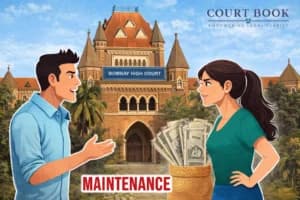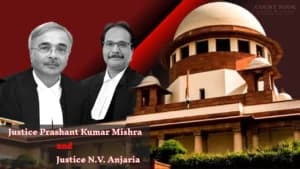Ranchi, October 15 In a notable hearing at the Jharkhand High Court, Justice Sanjay Kumar Dwivedi accepted the unconditional apology of advocate Rakesh Kumar, who had been facing contempt proceedings for an “inadvertent act” during court arguments. The decision came after senior members of the Bar intervened, requesting leniency and expressing collective regret over the incident.
Background
The case traces back to an order dated September 25, 2025, in which the Court had referred Rakesh Kumar’s conduct to the Jharkhand State Bar Council for disciplinary action. Kumar, who was appearing in two anticipatory bail matters, was alleged to have acted inappropriately during the proceedings.
His counsel, Mrs. Ritu Kumar, told the Court that the incident was purely accidental and not driven by intent. “The petitioner has already given an unconditional and unqualified apology,” she said, adding that Kumar had also undertaken in writing that such behavior would never be repeated.
The Bar Association had meanwhile stepped in, appealing to the Court’s sense of fairness and asking for a chance to restore professional dignity without punitive measures.
Court’s Observations
Justice Dwivedi began by recalling the principles of criminal contempt, explaining that it exists “to protect public confidence in the impartiality and integrity of courts.” He noted that justification cannot be a defense in contempt matters, as it could erode the very trust the law seeks to uphold.
“The true and indeed the sole test for acceptance of an apology,” the Judge remarked, “is genuine contrition felt and exhibited at the very outset.” He referred to the Supreme Court’s judgment in S. Mulgaokar (1978) to emphasize that while apology does not erase wrongdoing, a sincere and meaningful one-backed by assurance of reform-may influence the Court’s discretion.
The bench also highlighted that punishment serves a limited purpose, and societal correction often requires understanding and proportionality. “A social malady cannot be eradicated merely by inflicting legal punishment,” Justice Dwivedi noted, stressing that the goal was to maintain the machinery of justice in proper working condition.
Decision
Considering the collective remorse shown by members of the Bar, the unconditional apology of Rakesh Kumar, and his firm undertaking not to repeat the act, the Court concluded that the matter did not warrant further proceedings.
“The cause of justice would be subserved,” Justice Dwivedi said, “if the apology tendered by the petitioner is accepted and the proceedings are dropped.”
Accordingly, the High Court accepted the apology, expunged earlier adverse remarks, and requested the Jharkhand State Bar Council not to proceed further against Kumar. The order brings the matter to a close, offering the advocate a second chance under judicial compassion.
Case: Rakesh Kumar vs State of Jharkhand & Others
Case Type & Number: Cr. M.P. No. 3017 of 2025
Petitioner: Rakesh Kumar, Advocate, Ranchi
Respondents: The State of Jharkhand, Anil Kumar @ Anil Kumar Verma, Manish Kumar @ Sonu, and Akhilesh Kumar Singh
Date of Order: 15 October 2025















